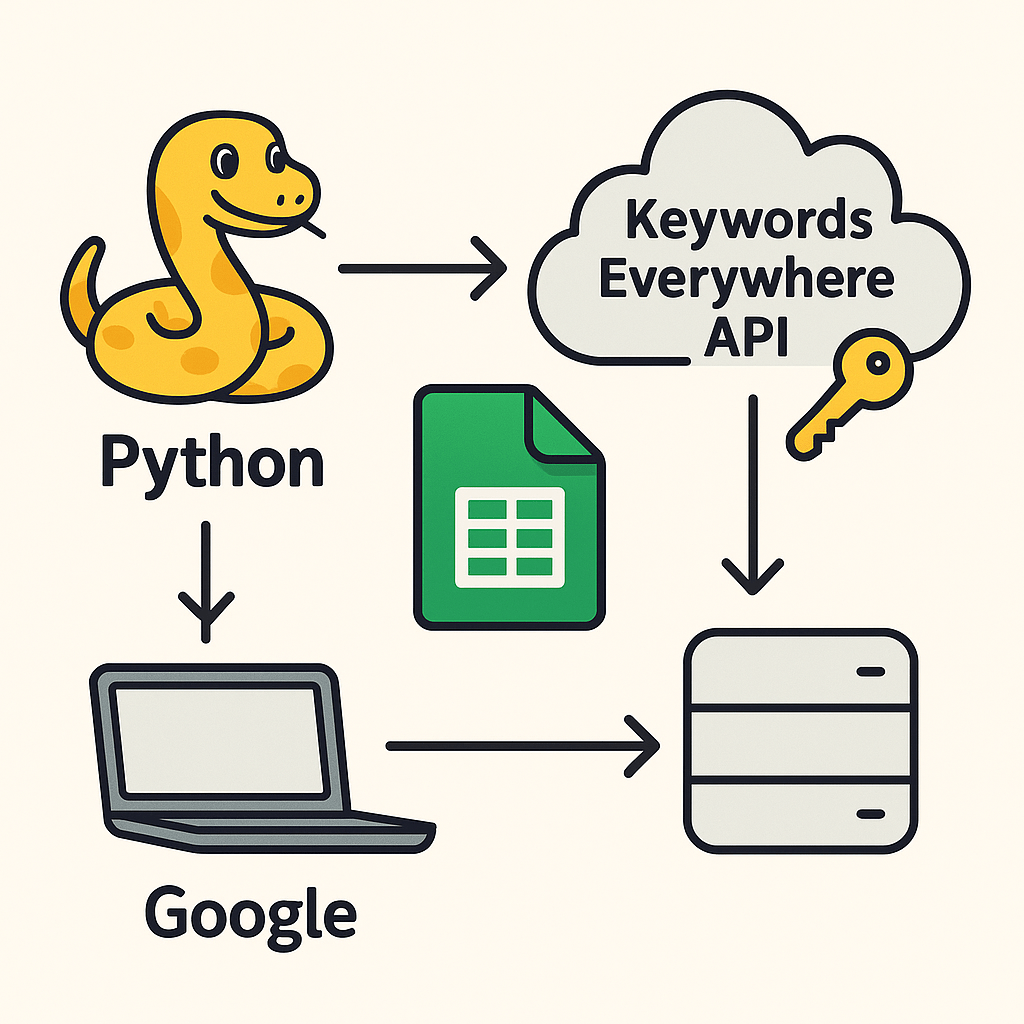Handing a website’s SEO to an agency means trusting a third party with growth targets, budgets, and brand reputation. If progress feels unclear, deliverables feel vague, or “SEO speak” is doing more work than results, a structured review helps separate signal from noise.
This guide sets out practical checks to understand what’s happening “under the bonnet”, spot red flags early, and decide whether to reset expectations, correct course, or end the engagement cleanly.
Table of contents
- 1. Nail down exactly what was expected
- 2. Turn vague hopes into solid KPIs
- 3. Insist on meaningful reporting
- 4. Own the data and access
- 5. Run a quick technical health-check
- 6. Review content quality and intent
- 7. Scrutinise link-building methods
- 8. Benchmark against competitors
- 9. Fix communication and ways of working
- 10. Decide and move forward
- Red flags to watch
- Handy links for verification
- FAQs
1. Nail down exactly what was expected
Before considering a change, get specific about what the agency agreed to deliver. Most SEO scopes include some combination of:
- Technical audits and fixes: crawlability, indexation, speed, internal linking, structured data.
- On-page optimisation: titles, headings, meta descriptions, and information architecture aligned to search intent.
- Content planning and production: topic research, briefs, editorial calendar, content updates.
- Off-page activity: digital PR, outreach, partnerships, citations (where relevant), and broader distribution.
- Reporting and analysis: performance, actions taken, what changed, and what comes next.
Pull up the original proposal or SOW (scope of work) and tick off deliverables. Any mismatch is the starting point for a clear, evidence-based conversation.
2. Turn vague hopes into solid KPIs
“More traffic” is a desire, not a KPI. SEO performance should be assessed against measurable goals that connect to outcomes. Useful questions to ask an agency:
- What is being targeted? Example: “Increase organic sessions by 20% in six months for priority pages”.
- Which metrics matter most? Organic clicks, qualified leads, revenue contribution, sign-ups, calls, or other agreed outcomes.
- How will progress be reviewed? A regular cadence (monthly is typical) with a consistent reporting format.
Tools such as Google Search Console (performance and queries) and Google Analytics 4 (journeys and conversions) should sit at the centre of KPI tracking.
3. Insist on meaningful reporting
A deck full of “rankings up two places” is rarely actionable. Reports should explain:
- What changed: work completed, releases made, content shipped, fixes applied.
- What happened: performance trends in organic clicks/sessions, conversions, and visibility.
- Why it happened: key drivers (seasonality, site changes, competitor movement, technical issues, content performance).
- What happens next: priorities, experiments, and expected impact.
At minimum, include traffic trends, query/page performance, technical health, content performance, backlink monitoring (where relevant), and conversion outcomes. Agree a fixed delivery window (for example, first week of the month) to keep everyone aligned.
4. Own the data and access
Data ownership prevents dependency and makes accountability simpler. Access should be held internally and shared with the agency as needed.
- Google Search Console: ensure internal ownership; provide the agency with Full user access where appropriate (or restricted access for read-only needs).
- Google Analytics 4: ensure internal ownership; provide the agency with appropriate access (Editor/Analyst/Viewer depending on responsibilities).
- CMS, hosting, and domain registrar: credentials should be controlled internally (shared vaults help).
- SEO tooling: if third-party tools are used (Ahrefs, Semrush, Moz, Screaming Frog, etc.), confirm access is available for internal stakeholders.
When access is clear, work can be verified and continuity is protected if suppliers change.
5. Run a quick technical health-check
A developer-level audit isn’t required to spot obvious issues. A lightweight health-check can reveal problems such as:
- Broken links and redirect chains
- Indexation and crawlability issues
- Slow-loading templates or heavy scripts
- Missing or incorrect meta tags
- Structured data errors or missed opportunities
If the agency cannot clearly explain what has been fixed, why it mattered, and how impact was measured, that’s a concern. Google’s SEO Starter Guide is a solid baseline for what “good fundamentals” should look like.
6. Review content quality and intent
Content quality is non-negotiable. If output looks like generic “me-too” articles, the content process needs scrutiny.
- Keyword and topic selection: is research driven by intent, not just volume?
- Briefs and outlines: are outlines reviewed before drafting to avoid wasted effort?
- Approval workflow: is editorial control defined and documented?
- Updates and consolidation: is older content refreshed, merged, or retired to reduce duplication and cannibalisation?
Google’s guidance consistently points towards understanding how people search and creating genuinely helpful content that satisfies needs. The goal is not keyword repetition; it’s clarity, usefulness, and relevance.
7. Scrutinise link-building methods
Links can help when earned legitimately through credible coverage and partnerships. Questions worth asking:
- Which sites are targeted? Industry publications, reputable directories (where appropriate), local media, and relevant communities.
- How is outreach done? Digital PR angles, data-led stories, partnerships, and genuinely useful assets.
- How is quality assessed? Relevance, editorial standards, real audience reach (not just a third-party metric).
- How are sponsored relationships handled? Sponsorships and paid placements should be labelled appropriately, with correct link attributes where required.
Any hint of bulk buying, private blog networks, or “guaranteed DA links” is a serious risk. Google classifies buying or selling links to manipulate ranking as link spam.
8. Benchmark against competitors
A strong agency should understand the competitive landscape. A competitor review should include:
- Keyword gaps: queries competitors rank for that are missing.
- Content gaps: topics, formats, and depth competitors cover better.
- Authority signals: brand mentions, PR coverage, and relevant backlinks (quality over quantity).
- Technical benchmarks: speed, mobile performance, indexation health, and internal linking.
No benchmark usually means no clear strategy.
9. Fix communication and ways of working
SEO projects stall when communication is unclear. Agree:
- Cadence: weekly updates, fortnightly calls, and a monthly performance review (as needed).
- Roles: who owns technical changes, content approvals, dev tickets, and stakeholder sign-off.
- Escalation: what happens when priorities slip or blockers appear.
- Documentation: shared notes, roadmaps, and change logs to avoid ambiguity.
If simple updates regularly take days, prioritisation is likely off.
10. Decide and move forward
Once evidence is gathered, there are three sensible paths:
- Reset expectations: align deliverables, KPIs, and timelines, then continue.
- Set a corrective window: define a short period (for example, 30–60 days) with specific targets and agreed actions.
- Plan an exit: confirm notice periods, data ownership, asset handover, and any fees.
If performance remains weak and transparency is lacking, ending the relationship can be done cleanly and professionally, without burning bridges.
Red flags to watch
- Guaranteed rankings (especially “#1 in Google” promises).
- Vague reporting that avoids outcomes and focuses on vanity metrics only.
- “Secret sauce” tactics that cannot be explained or verified.
- Link schemes such as paid links for ranking, private blog networks, or bulk placements.
- Restricted access where internal ownership of Search Console / Analytics / domains is discouraged.
- Shadow assets (doorway domains, pages, or accounts controlled by the agency rather than the business).
Handy links for verification
- Google SEO Starter Guide
- Google guidance on hiring and working with an SEO
- Search Console: Performance report
- Google Search spam policies (including link spam)
FAQs
How long should SEO take to show results?
Timelines vary by market, site condition, and starting visibility. Technical fixes can improve crawl/indexation quickly, while content-led growth and authority building often take months. A sensible approach sets expectations by workstream and measures incremental movement against agreed KPIs.
What should a good SEO report include?
A good report documents actions completed, changes shipped, and performance impact (clicks/sessions, conversions, and page/query movement). It should also explain what drove change and what will happen next, rather than listing rankings in isolation.
Which KPIs matter most when evaluating an agency?
The most useful KPIs connect to outcomes: qualified leads, sales, sign-ups, calls, or other business goals. Supporting metrics include organic clicks, conversion rate from organic, and performance of priority pages and query groups in Search Console.
What access should an SEO agency have?
Access should be least-privilege and role-based, with internal ownership retained. Search Console access is typically set as Full user for delivery teams, while Analytics access depends on responsibilities. Domain registrar and hosting ownership should remain internal.
Are backlinks still important?
Links can help, but quality and legitimacy matter more than volume. Credible editorial coverage and genuine partnerships tend to be safer and more effective than manufactured links. Any approach designed primarily to manipulate rankings carries risk.
What questions should be asked before ending an engagement?
Confirm what was delivered versus what was contracted, what was measured, and what is owned internally (accounts, access, content, assets, documentation). If a corrective window is offered, define actions, timelines, and success criteria in writing.



